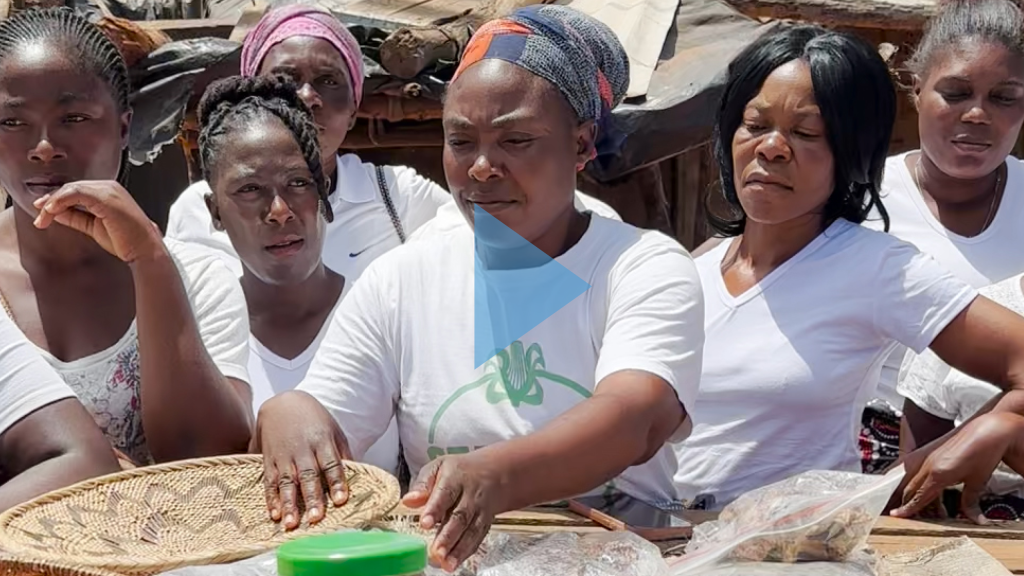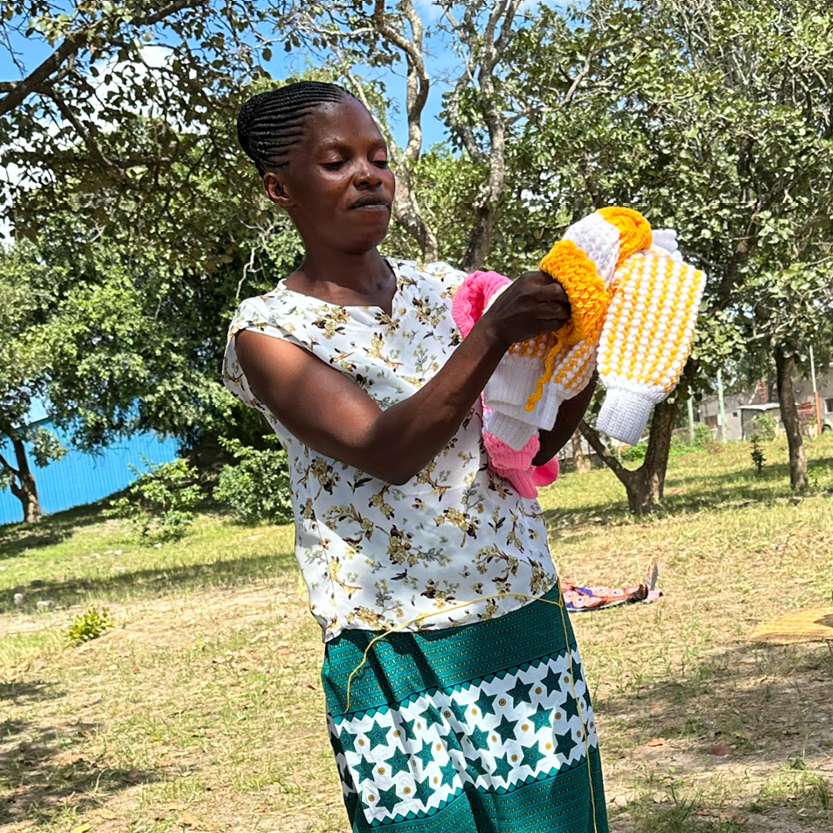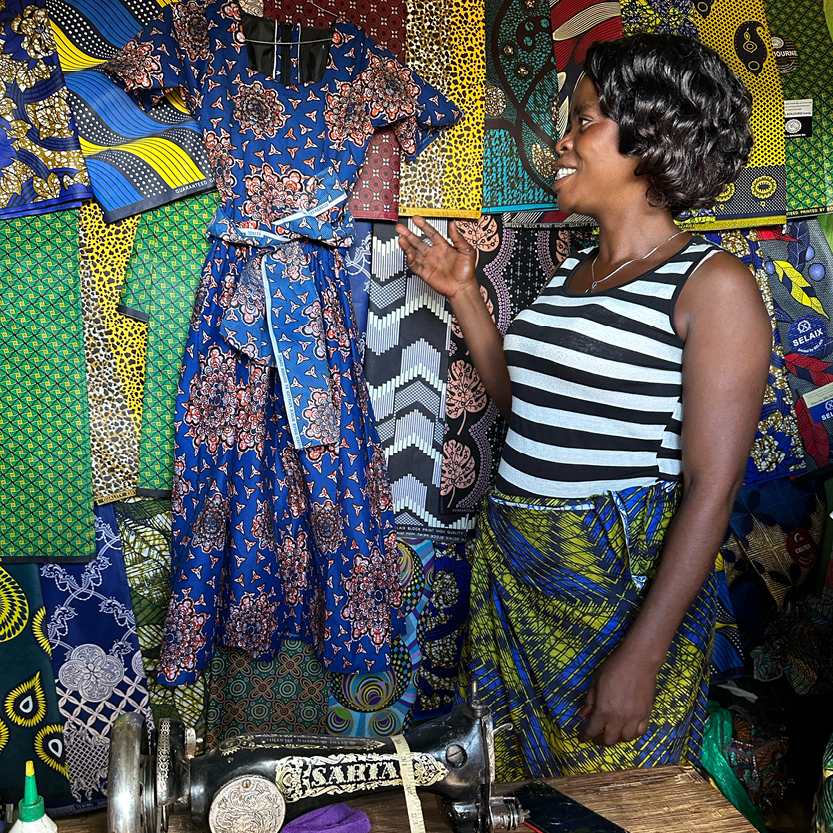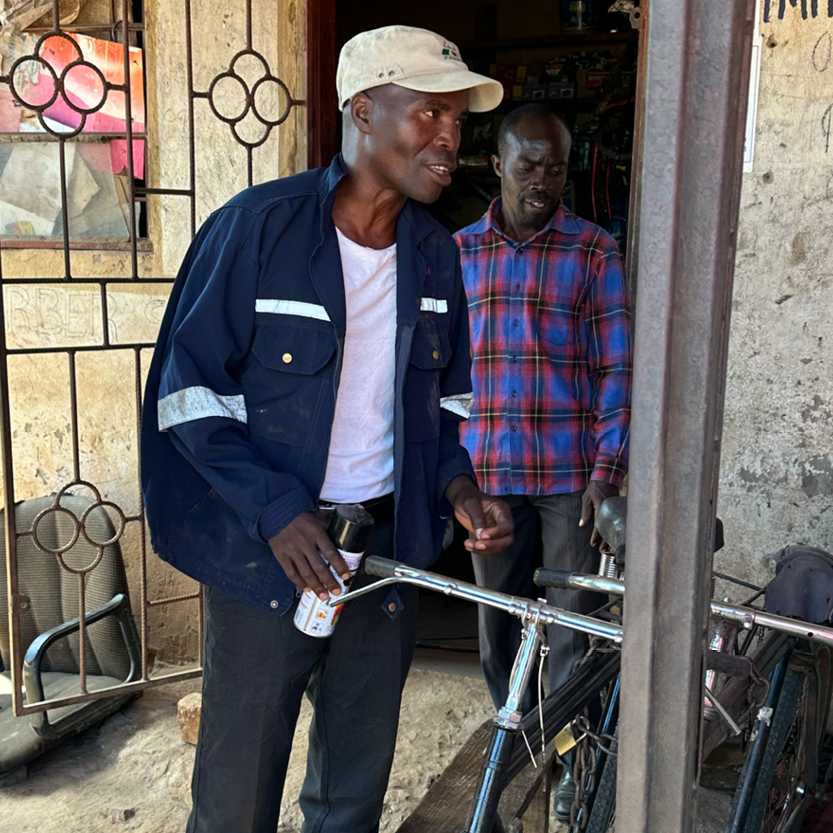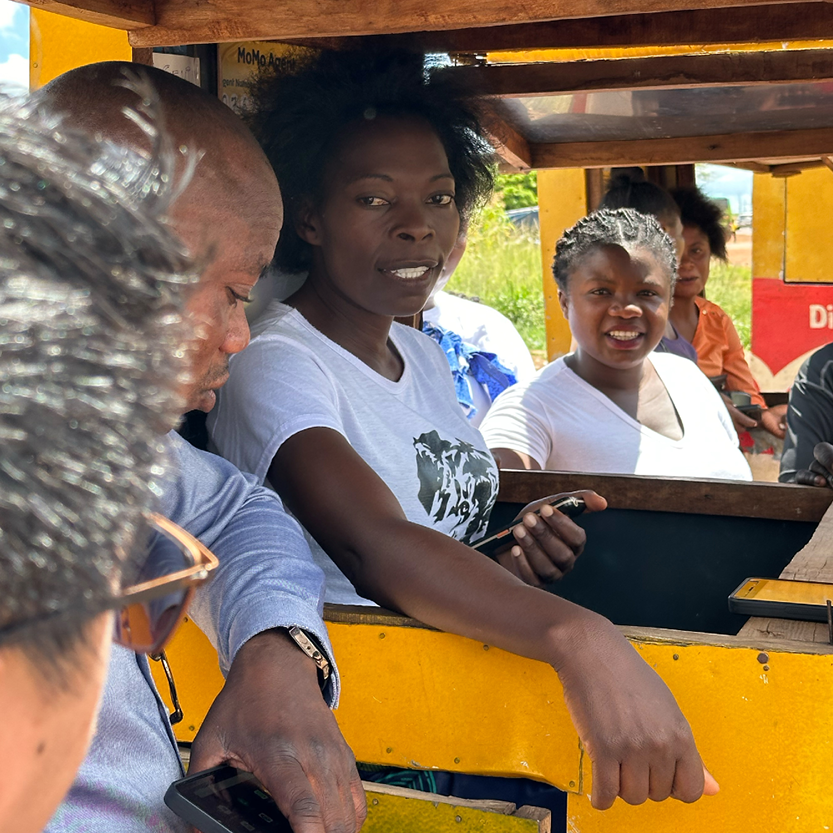by Barbara Wiedemann
Click on image above to play video.
The sun shone in an expansive African sky at the close of a March 3 visit to the growing rural town of Solwezi (pop. 90,000) in the North-Western Province of Zambia, an area rich with natural resources and dotted with copper mines.
The landlocked African nation situated between the equator and the southern Tropic of Capricorn is home to over 19 million people (roughly double the population of North Carolina).
Baskets full of sweet melons, gourds, and pineapples piled high at the front of a small church, just some of the parting gifts for a small delegation from the University of North Carolina at Chapel Hill School of Social Work who had come to learn about the impact of Solwezi-based women’s savings and credit groups and their financial literacy training.
“The bounty and generosity of spirit of the nearly 150 people of Solwezi whom we visited with earlier this month made a lasting impression,” said Alice Washington, a longtime member of the UNC School of Social Work’s advisory board.
The trip was coordinated by professors Gina Chowa and Rain Masa from the School’s center for Global Social Development Innovations (GSDI), in partnership with longtime collaborator Mathias Zimba, the executive director of Rising Fountains Development Program (RFDP), a Zambian nonprofit organization founded in 2000 with the mission of improving the livelihoods of women and children in rural Zambia.
During the trip to Solwezi, Masa explained, “Economic security is the focal point of our work. GSDI works collaboratively with local partners like Rising Fountains to tackle critical social and economic issues around the world.”
He emphasized the importance of focusing on community involvement in localizing economic programs so the chances of such programs to be relevant and successful are high.
An associate professor who also serves as research director at GSDI, Masa has worked with RFDP on both economic security and HIV treatment projects in the region.
“We provide funding and maybe more importantly, we are available to Mathias and his team for ongoing capacity support as well,” Masa added. “As partners, we work together to identify ideas and practices that will change lives for the better. Researchers and graduate students at the School can help build the evidence needed to demonstrate to policymakers, officials and the business community what is needed to improve the lives of rural Zambians.”
Chowa, a native of Zambia who speaks seven languages, serves as the associate dean for global engagement at the School. Chowa joined UNC in 2008 from the Brown School at Washington University in St. Louis. She founded GSDI in 2017 to foster evidence generated to most effectively advance youth well-being in low-resource countries.
The Center’s initiatives span six countries in Asia and sub-Saharan Africa, including Ghana, India, Kenya, South Africa, Uganda, and Zambia. In 2021, Chowa was recognized for her global efforts with the International Consortium for Development’s Leadership in Social Development Award. Two years later, Chowa was one of two professors campus-wide to receive Carolina’s UNC Faculty Award for Global Excellence.
“These people. This is why I do the work I do,” Chowa said, visibly moved at the end of a day spent at a teen center and a church, hearing from over a dozen enthusiastic groups of about 20 women each, accompanied by some of the men who had joined in support of their relatives’ efforts.
RFDP’s Zimba said, “A small percentage of men are now part of this economic strengthening intervention. Initially, we saw some resistance from these men, but when they saw the results and how the families benefited, they became supporters.”
The groups spoke effusively via a translator about how membership in the savings and credit groups facilitated by RFDP had helped them build their own small businesses and work to pay back the capital (in U.S. terms, very small loans) which had paved their career paths. Many presenters noted the benefit to their community of providing job opportunities through their business enterprises.
Following the presentations, a large group guided the delegation to various roadside locations to see the small business owners in action.
“To see the positive outcomes of this project and to see firsthand how such small amounts of money have already improved the lives of a relatively hard-to-reach rural population gave me great hope,” said delegate member Barbara Wiedemann, associate dean at the School. “I can’t help but imagine what continued support could do to help scale up this type of program here and in other areas of need.”
Welcome to Solwezi
“This is not about politics. I stand in the middle in support of our people helping better their lives and those of their families.” —Solwezi community leader
ABOVE: Christine’s small investment allowed her to purchase yarn, knit a small children’s sweater to sell, and use the profits to buy more yarn. She dreams of a knitting machine that would allow her to satisfy increased demand for her handknit clothing.
ABOVE: Bridgete invested in an Indian-made heavy-duty Sartaj sewing machine. She works with a small group of women to create colorful dresses, skirts, and quilts which they sell in town.
Charles began by buying spare parts for just one bicycle. Now, his bicycle repair shop serves so many customers that he has hired several assistants to help.
Medrin works on commission from a bright yellow phone booth using a mobile phone and SIM cards to help townspeople make financial transactions.
Support the UNC School of Social Work’s global partnerships by making a gift to the Global Social Development Innovations Fund.
Photography by Assistant Dean for Strategic Communications and Marketing Barbara Wiedemann.

